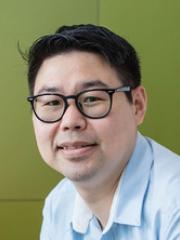Professor Victor Anggono

 Associate Professor Victor Anggono: Synaptic neurobiology
Associate Professor Victor Anggono: Synaptic neurobiology
Our research combines biochemical, molecular and cellular biology in both cell culture (primary neurons and cell lines) and mouse models. We utilise gene editing technology, cutting-edge microscopy, proteomics, next-generation sequencing and behavioural analyses in our study. We are particularly interested in understanding the complex neuronal signalling cascades through protein-protein interactions and post-translational modifications of key synaptic molecules.
Researcher biography
Victor Anggono is a neurochemist/neuronal cell biologist with an established track record in studying the molecular and cellular mechanisms of synaptic plasticity, focusing on the regulation of neuronal trafficking at the pre- and post-synaptic compartments. He received his PhD from the University of Sydney in 2007. Supported by an NHMRC CJ Martin and a Human Frontiers Long-term Fellowships, he subsequently conducted postdoctoral training at the Department of Neuroscience at Johns Hopkins University (Baltimore, USA). Victor returned to Australia in 2012 and established an independent research laboratory at the Queensland Brain Institute, The University of Queensland in 2014. He is currently an Associate Professor (supported by an ARC Future Fellowship) and leads a team of 10 researchers. Victor has published more than 60 papers in leading journals, including Nature Neuroscience, Nature Communications, PNAS, Cell Reports and Journal of Neuroscience. His work has received 7 recommendations from the Faculty Opinions and attracted over 4,900 citations (Google Scholar). Victor was awarded the Boomerang Award (Australian Society for Biochemistry and Molecular Biology, 2011) and the Young Scientist Award (Federation of Asian and Oceanian Biochemists and Molecular Biologists, 2015) for his research excellence. He has an excellent track record of mentoring, with two of his first postdoctoral fellows being funded by ARC DECRAs. He has supervised 6 PhD and 6 Honours students to completion.
